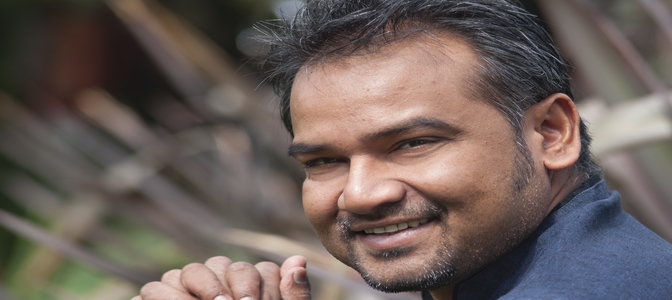Nila Madhab Panda’s film Megha’s Divorce starring Divya Dutta, Tannishtha Chatterjee, Manjiri Fadnnis and Chandan Anand was recently screened Manjiri Fadnnis, Geneva Observer for The G|O: SUSTAINED – Fossil Fuel Investment Needs to End NOW initiative.
The Geneva Concept by Adeline Von Furstenberg has picked the stories illustrated by eleven international filmmakers from 11 countries that reflect the intertwining relations between mankind and the environment and how they are worsened by climate change on several levels and dimensions. Nila Madhab Panda is the only Indian director who makes films on environmental changes, global warming and its effect on human life,

The participation of 11 interdependence films from 11 countries include Nila Madhab Panda/India, Faouzi Bensaidi/Morocco, Mahamat-Saleh Haroun/Tchad, Asa Hjorleifsdottir/Iceland, Salome Lamas/Prtyugal, Bettina Oberli/Switzerland, Shahrbanoo Sadat/Afganistan, Silvio Soldini/Italy, Daniela Thomas/Brazil, Leon Wang/China, and Karin Williams/New Zealand.
Talking about the honor Dr. Nila Madhab Panda says, “Environment change is a big issue and it’s high time we start paying attention to it. Geneva Observer’s initiative The G|O: SUSTAINED – Fossil Fuel Investment Needs to End NOW, is a big step toward the change. I am really honored that Megha’s Divorce is going to be part of the change in society, and it will be an eye opener for many when they will see how climate change is not only going to affect your health but also your personal life”.
About Megha’s Divorce
Megha’s Divorce is a story based in Delhi but could easily be in any Indian city. Akaash and his father are living in the poshest part of the city. His wife left them with their child and moved to the countryside to protect him from extreme air pollution choking Delhi and we meet them again in court, arguing for divorce. Climate change and air pollution used to be lingo of scientists, environmentalists, or policy makers. The degradation of air quality and other resources is affecting our daily life, economy, human emotions and even relationships.



Comments 5